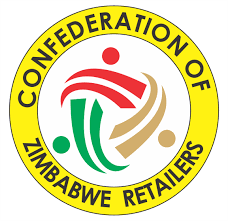Economic volatility causing huge strain on businesses: CZR
The Confederation of Zimbabwe Retailers (CZR) has warned that the volatility of the exchange rate and ongoing currency imbalances are placing enormous strain on businesses’ operational capacities, disrupting supply chains and hindering sustainable growth.
In a Mid-Term Monetary Policy consultative paper addressed to Reserve Bank of Zimbabwe (RBZ) governor, Dr John Mushayavanhu on Tuesday, CZR president Dr Denford Mutashu, said the inadequate access to foreign currency through formal banking channels was a major exacerbating factor.
This has left formal retailers and wholesalers with large, illiquid holdings of ZiG, the domestic currency, making it difficult to restock and cover operational costs.
CRZ is a lobby industrial group that represents retailers and wholesalers.
Dr Mutashu said the creation of a liquidity trap due to this situation, which, if left unaddressed, could severely undermine the viability of formal retail and wholesale operations.
“The primary constraint currently facing businesses in the retail wholesale sector is the volatility of the exchange rate, which is severely hampering operations across the supply chain,” said Dr Mutashu.
“The existing exchange rate mechanism is making it nearly impossible for businesses to recoup their investments.
“This instability has led to a significant demand for the US dollar, which is not readily accessible through formal banking channels, further exacerbating the matter.
Retailers and wholesalers are burdened with substantial stocks of ZiG, yet there is insufficient market capacity to absorb these funds, creating a liquidity trap.”
For instance, sugar suppliers are now requiring payments in a split of 85 percent US dollars and 15 percent ZiG, underscoring the disparity between available currencies and the operational needs of businesses.
Dr Mutashu said the untenable situation demanded urgent intervention to stabilise the exchange rate and ensure equitable access to foreign currency.
He said it was imperative to highlight the escalating operational costs that retailers are facing, primarily due to persistent power supply challenges.
These challenges have made fuel, a critical input for power generators and transportation, a major expense, primarily incurred in US dollars.
The reliance on foreign currency for fuel purchases is also placing a considerable financial strain on retailers.
“We strongly recommend that the Government intervenes by enabling fuel purchases in local currency to alleviate this burden and support the sustainability of businesses in the retail sector.”
Dr Mutashu also noted the deteriorating policy environment and the decline of formal businesses. He said the retail and wholesale sector was currently navigating a challenging policy landscape that was increasingly unsupportive of formal business operations.
Strict regulations
Strict regulatory measures have resulted in a decline in informal businesses, which are integral to the retail and wholesale landscape. These stores are being forced to shut down due to the untenable pressures created by the current policy framework.
As the regulatory environment becomes more stringent, formal businesses are struggling to remain viable, leading to a concerning rise in informal sector activities.
Dr Mutashu said the trend was not only detrimental to established businesses but also undermines the formal economy by pushing more economic activities into unregulated and untaxed domains.
The growth of the informal sector, at the expense of formal enterprises, presents significant risks to economic stability and revenue collection.
Moreover, the current policy environment, characterised by stringent regulations and high bank charges, had disproportionately burdened formal businesses, pushing many towards insolvency and inadvertently fuelling the growth of the informal sector.
The shift towards a cash-based economy, driven by prohibitive banking costs, was a clear indication that the existing monetary framework needs adjustment to foster a modern, efficient and transparent economic system.
“Another critical issue facing the retail and wholesale sector is the excessive cost of banking, particularly with regard to the Intermediated Money Transfer Tax (IMTT), which has been standardised at 2 percent.
“These charges are becoming increasingly burdensome for businesses, eroding profit margins and straining financial resources. As a result of these prohibitive costs, there is a growing shift towards a cash-based economy.
“Both businesses and consumers are resorting to cash transactions to avoid the high fees associated with digital payments.”
Regarding the expansion of the tax base, Dr Mutashu noted that given the growing informalisation of Zimbabwe’s economy, it was crucial to incorporate the sector into the country’s development strategy.
While primarily a fiscal matter, the CZR acknowledged the need to broaden the tax base to enhance revenue generation, aligning this effort with the broader goals of monetary policy stability.
By implementing a simplified presumptive tax system tailored to the informal sector, Zimbabwe could significantly expand its tax base, thereby alleviating the disproportionate burden on formal businesses and fostering a more competitive and inclusive economic environment.
This shift would not only improve fiscal revenue but also support the stabilisation of the monetary system by promoting the use of the local currency and reducing reliance on traditional taxation, which has placed undue pressure on compliant enterprises.
Share This:









